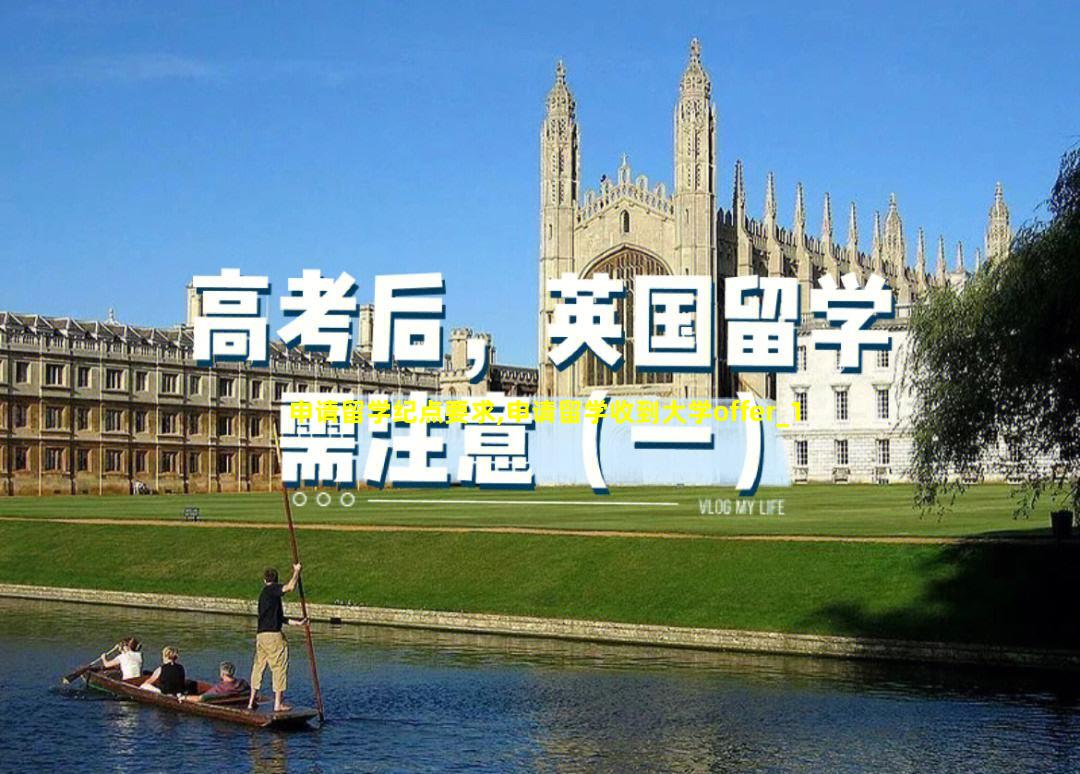 锦泰留学网
锦泰留学网申请留学的纪律要求如下:
1. 认真学习:申请留学需要具备一定的学术背景和能力。申请人需要在学业上认真学习,取得优秀的成绩,以增加留学申请的竞争力。
2. 提前规划:留学申请是一个复杂的过程,需要提前规划。申请人应该提前了解各个国家和大学的申请要求和时间表,合理安排准备。
3. 收集资料:申请人需要收集所需的申请材料,包括成绩单、推荐信、个人陈述、语言成绩等。这些材料需要按照要求进行准备和整理。
4. 提前准备语言能力:大部分国家的留学申请需要提供语言成绩,申请人需要提前准备并参加相关的语言考试,以获得足够的语言能力。
5. 寻找合适的学校和专业:申请人需要根据自己的兴趣和能力,寻找适合的学校和专业。同时,还需要了解学校的申请要求和录取标准。
6. 准备个人陈述:个人陈述是申请人展示自己的机会,申请人需要认真准备个人陈述,突出自己的优势和目标,以增加申请的成功率。
7. 寻求帮助:留学申请是一个繁琐的过程,申请人可以寻求相关机构和留学中介的帮助,以提高申请的效率和成功率。
申请留学需要申请人严格遵守相关的要求和纪律,做好准备工作,以增加申请的成功率。
Congratulations on receiving an offer from a university for your study abroad application! This is definitely an exciting and important milestone in your academic journey. Receiving an offer means that the university has recognized your potential and sees you as a valuable addition to their student body.
Now that you have received an offer, there are a few steps you need to take to secure your spot at the university:
1. Acceptance: Respond to the offer by officially accepting it. Make sure to carefully read through the acceptance instructions provided by the university and follow the stated deadline for acceptance.
2. Deposit: Some universities may require a deposit to secure your spot. Check the offer letter or the university's website for information on the deposit amount and deadline. Paying the deposit confirms your intention to attend the university.
3. Visa and Immigration: If you are an international student, you will need to apply for a student visa. Contact the university's international student office for guidance on the visa application process and the necessary documents required.
4. Financial Aid and Scholarships: If you have been awarded financial aid or scholarships, ensure that you follow the instructions provided by the university to accept or decline the offers. This may involve submitting additional documentation or signing acceptance forms.
5. Housing: Look into housing options provided by the university. Some universities offer on-campus housing, while others may provide resources for off-campus housing. Start researching and applying for housing as early as possible to secure a place to live.
6. Preparing for Arrival: Start planning for your arrival at the university. This may involve setting up a bank account, purchasing health insurance, arranging travel plans, and packing your belongings. Check out the university's website and orientation materials for information on orientation programs and necessary preparations.
Remember to stay organized and keep track of all deadlines and requirements. Reach out to the university's admissions office or the international student office if you have any questions or concerns. Enjoy this exciting time and best of luck in your future studies!
申请留学一般需要具备以下条件:
1. 学术成绩:拥有良好的学术成绩,通常要求GPA在某一特定范围内。
2. 语言能力:具备足够的语言能力,一般需要通过一定的语言测试,如托福、雅思等。
3. 学位要求:对于研究生留学,通常要求拥有相应的学士学位,而对于本科留学,通常要求高中毕业。
4. 推荐信:提供一些推荐信,推荐人可以是老师、导师或者雇主等。
5. 个人陈述(Personal Statement):写一篇个人陈述,介绍自己的学术和个人背景,以及为什么选择留学。
6. 相关考试成绩:有些留学项目可能还需要提供其他相关考试成绩,如SAT、GRE等。
请注意,具体的申请条件可能因国家、学校、专业等而有所不同,建议具体咨询相关留学机构或学校的招生办公室,以了解更详细的申请要求。

申请留学的均分是指申请人在学业方面的平均成绩。具体要求会根据不同的留学目的地和学校而有所不同。一般来说,留学申请需要提供申请人最近一到两年的成绩单,包括所有课程的成绩,以及学校提供的成绩转换或等级制度说明。留学申请人的均分会被用来评估他们的学术表现和能力,以决定是否符合学校的入学要求。一般来说,虽然对于不同的留学目的地和学校来说具体要求有所不同,但一般来说,有一个较高的均分会提升留学申请的竞争力,增加被录取的机会。